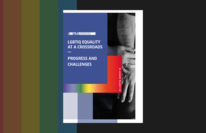
Human rights defender fled from Russia - deprived of liberty in Croatia
The Centre for Peace Studies (CPS), in collaboration with a lawyer, has today submitted an appeal to the Municipal Misdemeanor Court in Zagreb against the verdict that resulted in the long-time activist against Putin and human rights defender Vladislav Arinichev spending 15 days in detention. Arinichev protested in Zagreb against the life-threatening actions of the Security and Intelligence Agency. After being released from prison, Arinichev was again deprived of liberty as Croatia denied his asylum request, and he has been on a hunger strike for five days in the reception centre for foreigners in Trilj.












